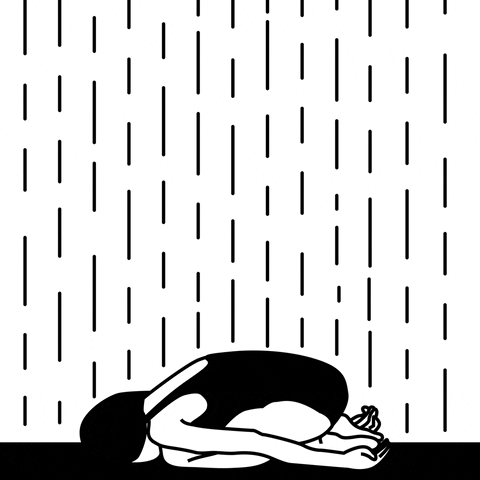- Comes Now
- Posts
- On Post-Election Malaise
On Post-Election Malaise
And dealing with it during the holiday season

I was devastated by the results of the U.S. election. Yet oddly enough, in the week immediately following the election, I felt strong and powerful. I knew that in the next four years I could useful—because I have the skills and temperament we will need. I am well-versed in the law. And as a plaintiffs’ attorney, I’m used to being creative and breaking new ground. I’m comfortable with the messy and complex. I’m also used to taking punches and getting back up again. I relish the challenges of being the underdog.
But that feeling didn’t last very long. As I turned my thoughts to the logistics of how I can help, I became overwhelmed. There are so many things I can—or should—be doing. Where to start? Who to call? What to do? I was angry, depressed, listless, and enraged. All at the same time. You name the emotion, I had it.
As my sense of overwhelm increased, I transitioned to being despondent. I started to wonder if it’s really worth doing anything at all. I was deeply saddened by the fact that such a large portion of the population didn’t see or care about what will happen to women and every other marginalized group in our society. Why should I bother when there are most definitely people within my own community who wish others harm or are gleefully celebrating the imminent destruction of freedoms, gender equity, civil rights, and democracy itself?
And oh, did I mention it’s the holiday season, when, as women, we’re responsible for all the things?
In this week’s issue of Comes Now, we’re going to talk about how women lawyers might be feeling right now, and what we can do about it.
High-Functioning Depression
As I was cycling through my emotions, I came across an article [paywall] in Forbes talking about women struggling with high-functioning depression after the election. It made a lot of sense to me. It explained that, while women are (of course) still “showing up at work, fulfilling their responsibilities, and appearing outwardly composed,” beneath the surface they are struggling. They are feeling “off.”
While there are undoubtedly men who feel the same way, as with most everything else, women disproportionately cite the election results as a significant source of stress. Those burdens feel even heavier because most of us are looked to for calm and comfort. Women in leadership are often expected to “keep it together” and lead through crises. In addition, because women in the workplace are so adept at masking our feelings, those around us may have no sense of what’s going on inside.
According to the article, this stress manifests itself is complex ways. While my personal experience described above is not universal, it is representative.
Women may start exhibiting increased absenteeism or “presenteeism.” We may call in sick more often or, conversely, show up to work but perform minimally. Everything we do is performative. Our hearts aren’t in it.
We may experience decreased engagement at work. Once actively-engaged individuals may withdraw from meetings or disengage in collaborative projects. We find ourselves saying “fuck it” with greater frequency.
People suffering from this type of high-functioning depression may start to procrastinate. Even if we have always been high-performing employees, we may struggle to stay on track and hit deadlines.
We may engage in avoidance behaviors such as seeking to avoid co-workers who they suspect hold opposing political views. Even if we previously felt a sense of closeness with our colleagues, we start asking whether those feelings were ever really real.
Finally, individuals feeling this type of stress may experience uncharacteristic emotional shifts or emotional highs and lows. Alternatively, we can experience a lack of emotion or detachment. We can just feel numb.
In short, even though the title of this issue references “malaise,” you may be experiencing burnout, which, according to the World Health Organization, is characterized by three dimensions:
feelings of energy depletion or exhaustion;
increased mental distance from one’s job, or feelings of negativism or cynicism related to one's job; and
reduced professional efficacy.
As I’ve written before, burnout fundamentally arises from a lack of agency and control. And that’s precisely what many of us are experiencing right now.
What to Do About It
Unsurprisingly, feelings of burnout after the election can be worsened by workplaces that don’t seem to give a shit about what we’re experiencing. While it doesn’t seem like it should be that hard to simply acknowledge our feelings, workplaces often don’t do that. I’ve written before about what it was like to be at work after Sandy Hook when I had a daughter the same age as those who were murdered. The biggest thing employers can do is simply acknowledge that the election may have taken a toll. Unsurprisingly (you don’t say!), studies consistently show that employees perform better when they feel heard and valued, even in the face of adversity.
Beyond how our workplaces can help, I don’t have a ton of answers about how to start to feel better. In fact, I don’t think we’re supposed to “feel better.” But as women lawyers we can and must get in the game to fight what’s coming. We have to do that even if we don’t feel like it.
We can also do this by also being pissed that we have to do it at all. That’s certainly the way Black women feel right now. We don’t have to selflessly offer ourselves to every cause and sacrifice our own peace.
We also don’t have to do it right now. As Shannon Watts (Moms Demand Action) says in this article, we can take a “sacred pause” and figure out what’s right for us.
But the “doing it” is the only thing that will bring us out of the malaise. We recover from burnout by consistently showing up and doing things that, slowly and surely, increase our feelings of agency and control. The answer can never be withdrawing into ourselves. We must join with others who share our views and do something about our feelings of hopelessness.
Do you have plans for getting out of your funk? Share them with me!
If you’re enjoying this newsletter, please share it with others and encourage them to subscribe. I draft it on Beehiiv (Comes Now (beehiiv.com)) and distribute it on Tuesday evening, but also post the issue as a LinkedIn newsletter on Wednesday mornings.
I also now post Comes Now issues on Instagram! (I just post a link to new issues; I don’t add additional content—yet.) You can find those postings at Comes.Now
Have a topic you’d like me to address? Want to tell me where I got something right or wrong? Send me an email at [email protected].


Reply